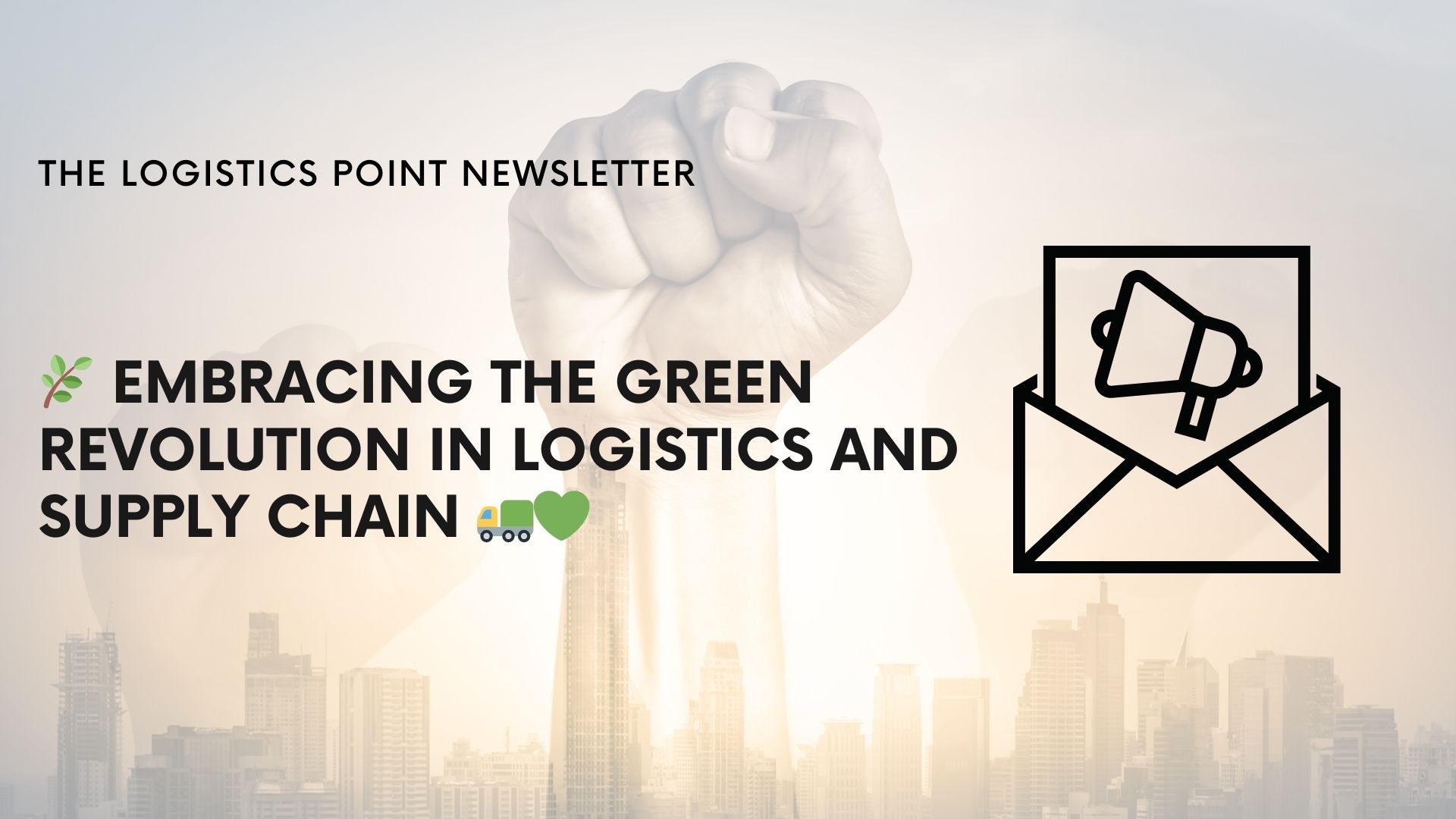The green revolution is everywhere but how ready is the logistics and supply chain industry? There are many things that need to be done and one of them will include supporting suppliers. The task is not easy and in this feature we are exploring how companies can help their suppliers understand the costs and benefits of becoming greener.

Historically logistics and supply chain managers have been focused on cutting costs down and improving efficiency. While these two are still key priorities they might clash with the trend towards greening up operations and becoming more socially responsible.

The story behind ESG is one that took a long time to develop but has finally reached a point of no return. Organisations across the supply chain are focused on their ESG journey and invest heavily both financially and by supporting their extensive network of suppliers.

Costs’ problems
‘The senior leadership teams of our suppliers have historically been focused on optimising cost and service, rather than addressing decarbonisation and other ESG objectives,’ admits Evri , one of UK’s leading logistics companies. The organisation is becoming an industry leader when it comes to green initiatives and ESG. 85% of their suppliers have signed up to their code of conduct and the company works with them to better understand and control Scope 3 emissions. But problems persist.

‘Transitioning to greener operations often requires a significant upfront investment, such as new equipment, infrastructure, research and development and training. For many suppliers, especially smaller ones, these initial expenses can deter them from pursuing sustainable practices,’ explains Todd Simms , VP, Industry Strategy, Manufacturing at FourKites, Inc.
Due to the current economic situation companies are pressed against the wall and some have to make hard decisions. Costs is what many industry leaders start speaking about when sustainability comes into the conversation.
But financial performance and sustainability must not be pitted against each other. It doesn’t have to be either/or. That’s why the most forward-looking companies will continue to lean into sustainability initiatives, albeit with a slightly different mindset. ‘The question will become, how can we best combine our environmental aspirations with an economical target?,’ believes Serge Schamschula , Head of Head of Ecosystem at Transporeon , a Trimble Inc. Company.
The point is fair but that does not mean solutions are easy to come. The ESG team at EVRi has noticed that often companies will slow down or give up on their commitments if an immediate answer to the cost problem is not found. ‘They’re certainly keen to address these issues but if ‘easy’ or ‘obvious’ options for going greener aren’t operationally cost effective they’re not necessarily researching alternative (more creative) solutions.’
Not just about the costs
Outside of monetary assistance, it’s crucial for those looking to drive sustainability across the supply chain to find the right technology partner that can guide them through the transformation process.
‘The most significant carbon savings can be made when optimising the existing machines that suppliers are using to store and transport goods, and thanks to advances in technologies such as the Internet of Things, hardware can be digitally upgraded without the need for a complete and expensive overhaul,’ says Edward Porter , Director of IoT Solutions at IMS EVOLVE .
Many organisations are now offering granular emission tracking with focus on Scope 3, which for most is not easy to understand. ‘Setting clear, achievable goals provides direction and purpose, ensuring that efforts are channelled effectively. Prioritising easy wins in the initial stages can build momentum, fostering a culture of success and encouraging further innovation,’ believes Todd Simms at FourKites.
This is one of the things companies like EVRi have focused on. Over the last year the organisation has been gaining a better understanding of the carbon footprint, decarbonisation maturity, and resources available to their suppliers through a number of workshops and supplier assessments. This has helped to understand what actions and support will have the most significant impact in driving forward their decarbonisation plans.

‘Financial support is essential to identify where money could be saved or invested elsewhere,’ says Serge Schamschula at Transporeon but is also careful to underline that there is not a single solution or type of support that will contribute the most.
The support that is most beneficial for suppliers transitioning to greener operations can vary depending on their specific circumstances and challenges. ‘In many cases, a combination of different types of support is the ideal, however financial support including grants, subsidies, loans and incentives, will be a critical part of transitioning to a greener supply chain to lower the upfront costs and risks for adopting organisations,’ adds Edward Porter from IMS Evolve.
Data & tech
What all ways to reach decarbonisation have in common is the need for more data and the careful measurement of where the supply chain is now. It will take a combination of cost-efficient technologies with a low barrier to entry and clear ROI, as well as government investment and effective training to ensure a smooth transition to greener operations for suppliers.
The first step should always be education. Making the shift to greener operations often requires specialised knowledge and expertise in areas such as renewable energy, sustainable supply chain management, and eco-friendly design.
Suppliers may lack the necessary in-house skills and knowledge in order to make informed decisions about sustainable practices.
‘We have the benefit of a strong ESG team who help us to understand the impact different choices will make on our business. Many of our suppliers don’t have that, so the first step is helping them to understand what’s important and what they can practically do to drive change,’ EVRi explains.
The training and education include not just seminars and careful evaluation but also driver training and upskilling. Driver training is particularly beneficial support for aiding suppliers in transitioning to sustainable approaches and saving cost in parallel. If backed by a good FMS (Fleet Management System) data, it can reduce fuel / energy consumption as driver behaviour can impact vehicle fuel efficiency, for example.
The Logistics Point would like to thank the organisations which participated in this feature: EVRi, IMS Evolve, Transporeon, FourKites. *

